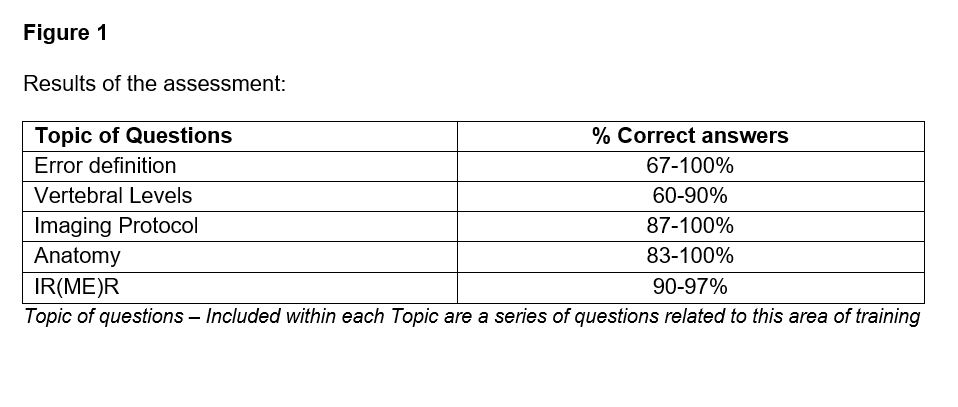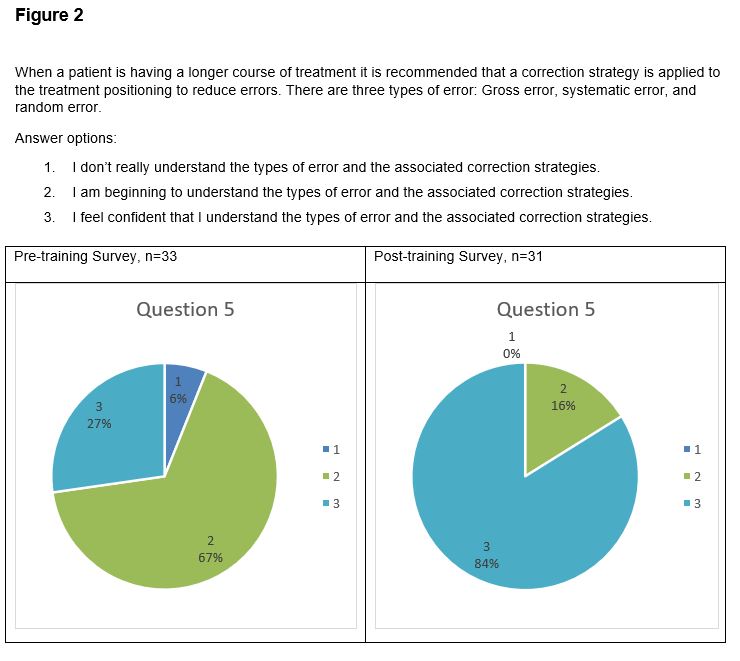Evaluating the Verification Imaging Passport (VIP) in Pre-Registration, Final Year RTT Students
Helen Jones,
United Kingdom
PO-2297
Abstract
Evaluating the Verification Imaging Passport (VIP) in Pre-Registration, Final Year RTT Students
Authors: Terri Barnes1,2, Lauren Fantham3, Chris O'Sullivan4, Helen Jones1, Rebecca Johnson5, Ruth Rowse6
1Guys and St Thomas’s NHS Foundation Trust, Radiotherapy, London, United Kingdom; 2Musgrove Park Hospital, Taunton, Somerset, Radiotherapy, Taunton, United Kingdom; 3St George’s, University of London, Centre for Allied Health, London, United Kingdom; 4 City, University of London university , School of Health & Psychological Science, London, United Kingdom; 5South Bank University, Institute of Health and Social Care, School of Allied and Community Health, London, United Kingdom; 6Hertfordshire University, School of Health and Social Work, Hertfordshire, United Kingdom
Show Affiliations
Hide Affiliations
Purpose or Objective
The VIP is a newly developed training package that allows RTT’s to gain IGRT competencies that are recognised within twelve centres in London. The aim of this study was to assess the effectiveness of the training and assessment aspect of the VIP by assessing the learning gains of pre-registration Radiotherapy and Oncology students across four universities which have students training within London Hospital trusts.
Material and Methods
A purposive sample of pre-registration Radiotherapy and Oncology Students were invited to participate in this study. The students were asked to rate their knowledge and understanding of IGRT using a five-point Likert scale questionnaire, prior to the training and assessment. The training was around 2D imaging and general IGRT considerations. They were then asked to repeat the questionnaire, rating their knowledge and understanding to determine if there was a learning gain. The questionnaires were deployed in SmartSurveyTM. Results were analysed using descriptive statistics and presented as figures. Student were then invited to rate the overall training and assessment process and provide feedback on the module. Ethical approval was sought through the university ethics committee.
Results
30 students across the four universities participated in the study. It was noted that questions with multiple answers scored the lowest. Two of the lower scoring questions were removed as they did not state “select more than one answer”. This brought the average score up from 83.3% to 85.8%. The average score for the assessment was 26.6 out of a total 31 points available. 86.2% of the students score above 80%. The students scored highly in the Anatomy and IR(ME)R questions and scored least favourably in the Vertebral Levels questions, shown in Figure 1.
There was a positive learning gain observed in all aspects of the training and assessment. The largest learning gain was seen in the topic of correction strategies shown in Figure 2. It is noted that some students undertook the pre-questionnaire but did not follow through to the assessment and the post questionnaire. There was an overall positive response to the content and delivery of the training and assessment, with constructive feedback to improve the training.


Conclusion
The training and assessment were successful at providing the students with a learning gain. Therefore, the modules within the VIP are adequate to support the learning of newly qualified RTT’s in achieving their IGRT competencies. Further study is required to assess the implementation of the VIP within the London centre setting.